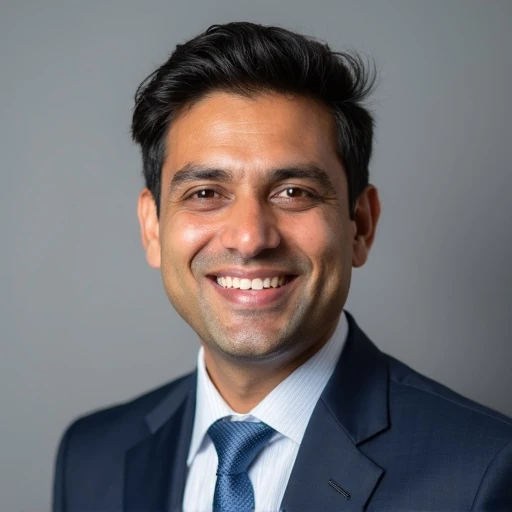Zohran Mamdani, New York City’s incoming mayor, is adopting a novel strategy to maintain the energy of his successful grassroots campaign. Advised by Harvard Kennedy School lecturer and 2008 Obama campaign veteran Marshall L. Ganz, Mamdani's team has launched a new advocacy nonprofit aimed at channeling volunteer enthusiasm into policy action after the election.
The organization, named Our Time for an Affordable NYC, officially launched on Thursday. Its primary goal is to prevent the dissipation of the powerful organizing base that secured Mamdani's victory, a challenge that has faced many successful political movements in the past.
Key Takeaways
- Incoming NYC Mayor Zohran Mamdani's team has launched a new nonprofit, Our Time for an Affordable NYC.
- The organization aims to sustain the grassroots movement that propelled Mamdani to victory.
- Harvard lecturer Marshall L. Ganz, a key figure in Barack Obama's 2008 campaign, is advising the effort.
- The strategy is designed to avoid the 'Obama trap,' where a powerful volunteer base is sidelined after an election.
- The nonprofit will operate in parallel to the mayor's office, advocating for his policy agenda.
Learning from Political History
The decision to form a separate advocacy group stems from a desire to learn from previous political campaigns. Marshall L. Ganz, a political organizing scholar, has been a central consultant to Mamdani's team, brought in to share insights from his experience.
Ganz noted that a common misstep is for a new administration to sideline the very people who got them elected. He referred to this as the “Obama trap,” where a highly effective organizational structure is allowed to dissolve once the goal of winning the election is achieved.
“A lot of the discussion was about what comes next. How to avoid the Obama trap, how to avoid having built a really great organization and just dissipating it.”
The new nonprofit is the direct answer to that challenge. “They’re building an organization parallel, but not owned by Mamdani — but parallel in values and orientation to the campaign,” Ganz explained. This structure allows the organization to advocate for Mamdani's agenda without being an official part of the government, giving it more flexibility and independence.
A Focus on People and Leadership
Ganz emphasized that the success of Mamdani's campaign was rooted in its human-centric approach. He was first brought onto the team by field organizer Tascha Van Auken, also an alumna of the Obama campaign. Ganz conducted training sessions for Mamdani's staffers throughout the campaign.
“The deep investment that they made in leadership development — nobody’s done that since the Obama campaign,” Ganz said. He praised the campaign's existing structure, stating that his role was more about supporting a good system than overhauling it.
Who is Marshall L. Ganz?
Marshall L. Ganz is a senior lecturer in public policy at the Harvard Kennedy School. He is an experienced organizer who began his work with the Civil Rights Movement in the 1960s. He is widely credited with devising the grassroots organizing model for Barack Obama’s successful 2008 presidential campaign, which focused on empowering local volunteers and community leaders.
This focus on people was evident at Mamdani’s election night celebration. According to Ganz, who was in attendance, the event was centered on the volunteers. There were no exclusive VIP areas, and it was the field organizer, Van Auken, who addressed the enthusiastic crowd, not a high-profile donor or political advisor.
The energy in the room was palpable and predominantly young. “It’s hopeful, it’s energetic, it’s aspirational,” Ganz remarked, highlighting the youthfulness of Mamdani's support base.
Building a Broad Coalition for Governance
As Mamdani prepares to take office, he is sourcing input from a wide range of experts. Beyond Ganz, he has consulted with figures like Lilliam Barrios-Paoli, a former deputy mayor in the de Blasio administration, and liberal policy analyst Matt Bruenig.
Even former President Barack Obama has taken an interest, calling Mamdani twice between the primary and general elections. Their most recent conversation reportedly focused on the challenges of implementing a policy vision after winning an election.
Governing New York City
The new mayor will face the immense task of managing a city with a $115 billion budget and a municipal workforce of approximately 300,000 employees. This requires a transition from campaigning to the complex realities of day-to-day governance.
Mamdani's transition team reflects a strategy of balancing progressive ideals with practical political experience. Key members include:
- Lina Khan: The current chair of the Federal Trade Commission.
- Experienced Staff: Aides who have served under former mayors Eric Adams, Bill de Blasio, and Michael Bloomberg.
This blend of new-guard progressives and seasoned city hall veterans suggests an approach that aims to be both ambitious and pragmatic.
The Road Ahead for the Mamdani Administration
The primary task now is to translate campaign energy into effective governance. The creation of Our Time for an Affordable NYC is the first major step in this process, designed to keep supporters engaged and mobilized around specific policy goals.
Ganz believes the campaign's success was due to its focus on people, a lesson he feels is crucial for the Democratic party. He contrasted the modern political obsession with data and polling with the fundamental need for human connection.
“James Carville was famous for saying it’s the economy, stupid. I’d want to say it’s about the people, stupid.”
For his part, Ganz remains committed to assisting the new administration as it navigates the transition from a political movement to a functioning government. While his exact role is not yet defined, his enthusiasm is clear.
“I want to be of service. I want to be involved in any way I can,” he stated. “I really think it matters.” The success or failure of this new model—a parallel nonprofit designed to sustain a political movement—will be closely watched by political operatives across the country.





